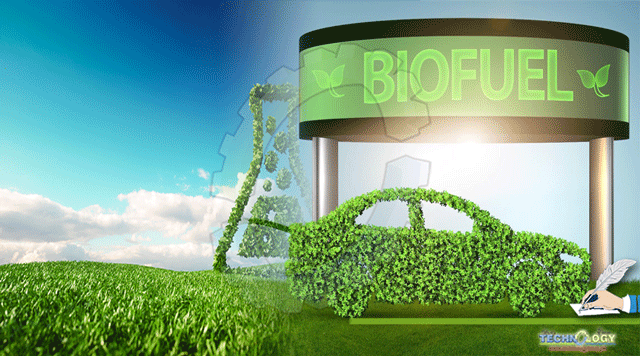Biofuels are environment friendly products made from organic sources like plants, microorganisms and animal by-products. Biofuel is considered as source of renewable energy and has great potential to mitigate greenhouse gases.

By Iqra
It must be compatible with engine’s requirement and has similarity with conventional fuel’s characteristics. Biofuels made from biomass like crop residues, wood and manures. Like, biogas is made by following anaerobic digestion of human and animal wastes and considered a part of biofuels. Basically, Biofuels are categorized into three groups, the first group included oils reacted to form fatty acid methyl esters or hydrocarbons, the second group comprised of fuels prepared by alcohols fermentation, and third group contained oils prepared by following hydrogenation process to produce hydrocarbons within conventional petroleum carbon ranges. So, Biofuel has a potential to be used in transport industry with necessary processing of organic sources.
Uses of biofuels
The transport sector emits 14% greenhouse gases and predicted to enhance globally due to higher demands for conventional fuels 50 to 60% in the end of the decade reported by different researchers. The major concern of developed countries policy makers included decreased greenhouse gases emissions from transport sector. Biofuels are used as transport fuels. It is compatible with requirements of conventional fuels and engine requirements. Alike, biodiesel and bio butanol are also compatible with compression ignition operated engines and gasoline engines used as blend in petroleum derived conventional diesel and petroleum gasoline respectively. Bioethanol and biodiesel (manufactured by treating of animal and plant oils) are used for more than hundred years. Biodiesel is produced from canola (rapeseed), soybean, palm oil and a little amount from other crops. Different scientific reviews showed that countries like France, Brazil, Germany, the United States and the rest of European Union are producer of biofuels.
Advantages and disadvantages of biofuels
Biofuels have made in virtually in any location and provide energy securities to people. It has minimum safety and health issues because it burns cleaner than other conventional fuels. Biofuels have potential to reduced greenhouse gases emissions and net eradication of carbon dioxide from the atmosphere based on adoption of its processing technologies. The blended product with conventional fuels can easily be used by exiting vehicle’s engine without modification. But every useful thing has also its dark site if not used properly and without sustainable management. Alike, biofuels production based on organic materials means higher production rate of biomass and animal oils are required. So, for higher crop production different inputs like fertilizers, availability of water, better irrigation systems, good quality of seeds and the most important productive soils are required. The emissions of greenhouse gases increased twice if fertilizers are applied without following 4R’s (included right time, source, place and rate) of fertilizers application. Biofuels may help in reduction of greenhouse gases emissions but it’s not a carbon neutral product. Other problems included high rate of products like wheat and sugar prices may increase due to supply of food crops raw materials to other markets. Further, biofuels are more expensive made from corn and produced minimum bioethanol per hectare than other tropical crops like sugarcane. So, the better option for developing countries included to supply raw materials of respective crops to other developed biofuels producing countries and cultivate plants on barren lands may increase incomes of local farmers.
Biofuels production in Pakistan
The biggest business sector of Pakistan is agriculture. About 60 to 65% population directly and indirectly involved in this business. The major crops included wheat, rice, maize, sugarcane and cotton. Fuel crops included wheat, cotton seeds, rapeseeds, maize and sunflower etc. If we are not interested to produce biofuels from edible crops seeds than great plants diversity like Indian beech tree (Pongamia pinnata), Jutropha (Jutropha curcas), castor bean (Ricinus communis) and jojoba (Simmondsia chinensis) etc. exist in Pakistan. These plants have high non edible oils concentration that can produce easily biodiesel. Farmers and local people can easily grow these plants on ample margin or fallow lands with proper training given by agriculture trainers. Further, Pakistan has its own sugar industries and another required reactant ethanol/methanol is easily available for production of biodiesel. Government, semi-government and private industries should be worked on its industries, because we produced enough raw materials. More production of biofuels ensures to manage sustainable environment, increase economy and overall gross domestic production of Pakistan.
This article is authored by Iqra Ghafoor at Department of Agronomy, MNS University of Agriculture Multan, Pakistan.